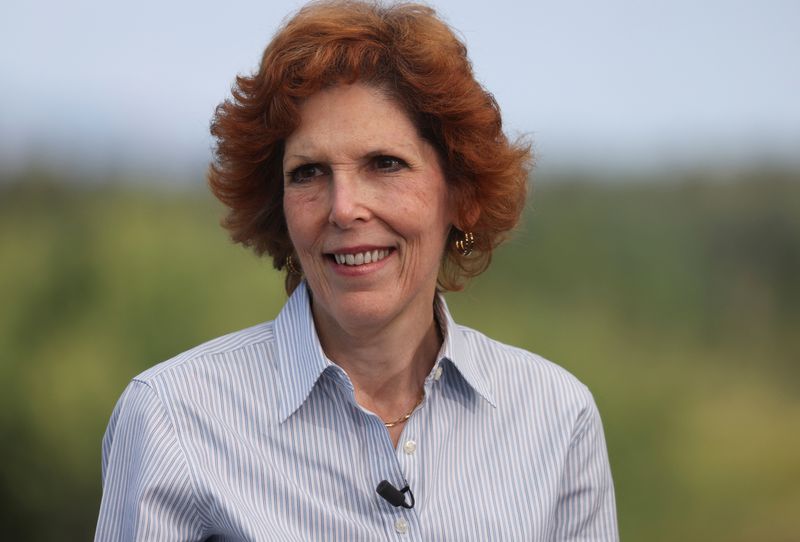By Ann Saphir
(Reuters) - With inflation "unacceptably high," the Federal Reserve should lift rates higher and keep policy restrictive for some time, Cleveland Fed President Loretta Mester said on Monday -- and if there is an error to be made, better that the Fed do too much than to do too little.
"When there is uncertainty, it can be better for policymakers to act more aggressively because aggressive and pre-emptive action can prevent the worst-case outcomes from actually coming about," Mester said in remarks prepared for delivery to the Massachusetts Institute of Technology.
Mester said she would be "very cautious" about assessing inflation, and would need to see several months of declines in month-to-month readings to be convinced it had peaked. Similarly, she said she will "guard against being complacent" on long-term inflation expectations that have recently dropped a bit but may not, she said, be as well-anchored as hoped and could rise again.
Policymakers faced with uncertainty over inflation expectations should risk setting policy too tight rather than too loose, she said.
"Research indicates that erroneously assuming that longer-term inflation expectations are well anchored at the level consistent with price stability when, in fact, they are not is a more costly error for the economy than assuming they are not well-anchored when they actually are," Mester said.
The Fed last week increased its policy rate to 3%-3.25% in its third 75 basis point hike in so many meetings.

Policymakers signaled another similar sized hike is likely at their next meeting in November, with more increases on tap in subsequent months, as the U.S. central bank seeks to get borrowing costs high enough to bite into growth and bring down inflation running at three times its target, even at the cost of a rise in unemployment.
"Further increases in our policy rate will be needed," Mester said. "In order to put inflation on a sustained downward trajectory to 2%, monetary policy will need to be in a restrictive stance, with real interest rates moving into positive territory and remaining there for some time."